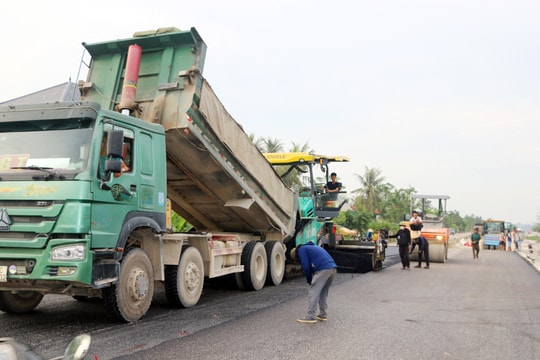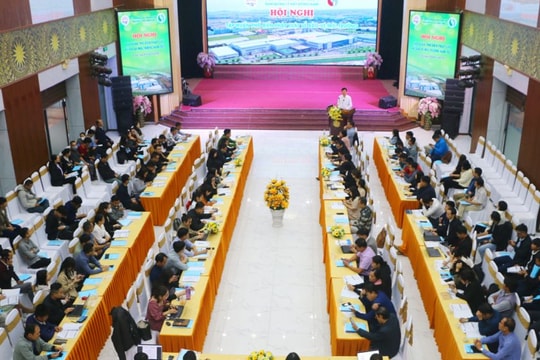Law on Environmental Protection officially takes effect: Promoting the role of government and people
(Baonghean.vn) - On January 1, 2022, the Law on Environmental Protection officially took effect. Nghe An Newspaper had an interview with Mr. Thai Van Nong - Deputy Director of the Department of Natural Resources and Environment on a number of issues related to the implementation of the law.
 |
| Wastewater treatment system at Hoa Son Cassava Factory (Anh Son), at Vinamilk Cua Lo Milk Factory and Nam Cam Industrial Park. Photo: Mai Hoa |
Reporter:Dear comrade!Law on Environmental Protectionwas passed by the National Assembly on November 17, 2020 and will take effect from January 1, 2022. Could you please tell us about the new points that need attention as stipulated in this Law?
Comrade Thai Van Nong:Law of Protectionenvironmentwas passed by the National Assembly on November 17, 2020, effective from January 1, 2022 (except Clause 3, Article 29 of the Law effective from February 1, 2021).
This Law regulates environmental protection activities; rights, obligations and responsibilities of agencies, organizations, communities, households and individuals in environmental protection activities.
The Law stipulates 11 State policies on environmental protection; including policies to create favorable conditions for agencies, organizations, communities, households and individuals to participate in implementing, inspecting and supervising environmental protection activities; policies to enhance scientific research and technology developmentpollution treatment, recycling, waste treatment; prioritize the transfer and application of advanced technology, high technology, environmentally friendly technology, the best available techniques; strengthen human resource training in environmental protection.
The Law also clearly stipulates 14 prohibited acts in environmental protection activities, including discharging untreated wastewater and exhaust gas into the environment that do not meet environmental technical standards.
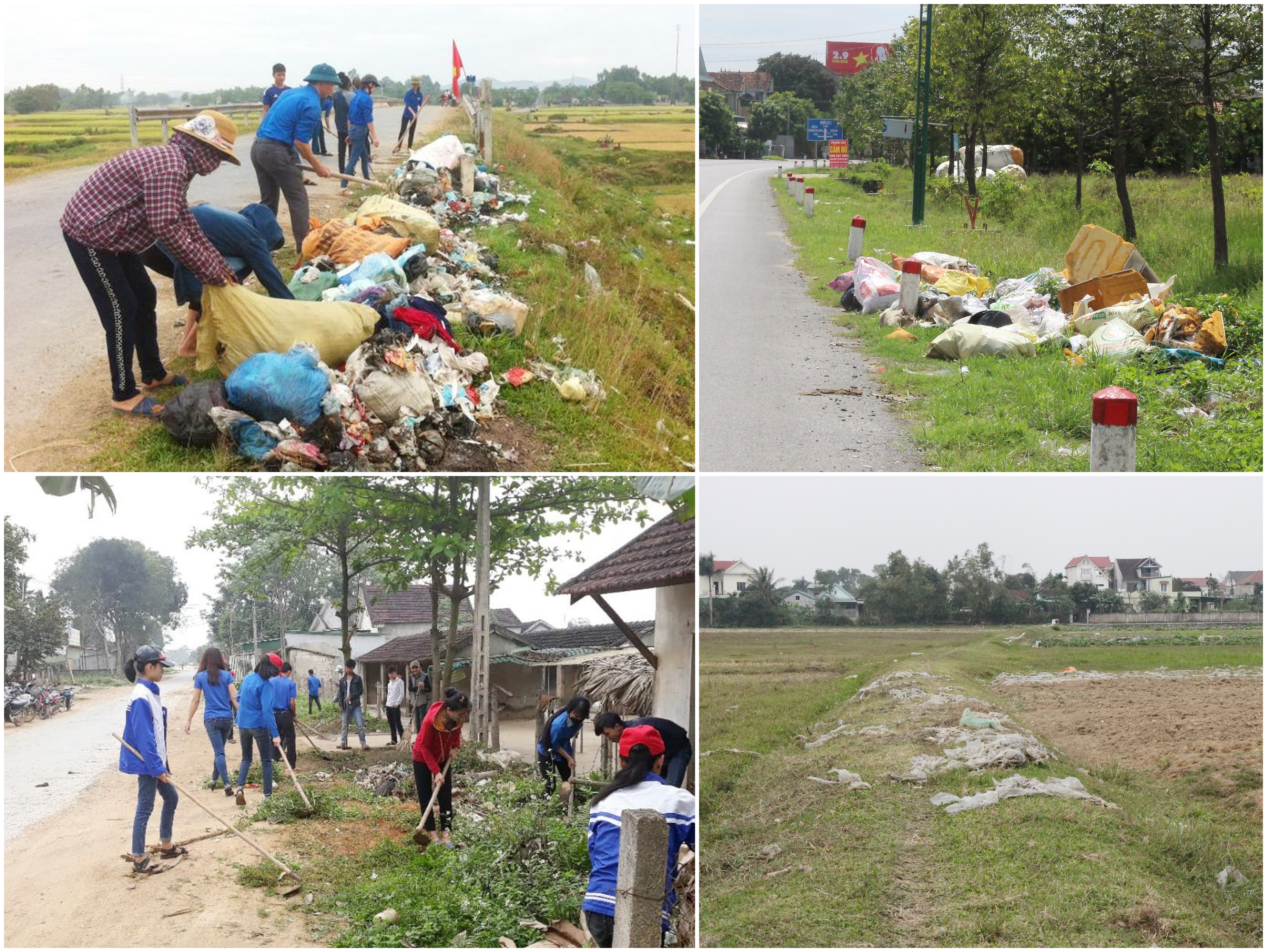 |
| Illegal dumping is one of the prohibited acts. Photo: Mai Hoa |
Regarding new regulations, the Law on Environmental Protection 2020 focuses on the following contents:
- Integrate many administrative procedures into one procedure; from the certificate of completion of environmental protection works, the certificate of eligibility for environmental protection in importing scrap as raw materials for production, the license for hazardous waste treatment, the register of hazardous waste source owners, the license for industrial gas discharge, the license for discharging wastewater into water sources (according to the provisions of the Law on Water Resources), the license for discharging wastewater into irrigation works (according to the provisions of the Law on Irrigation), into an environmental license; at the same time, remove the procedure for confirming environmental protection plans for investment projects.
- The decentralization of appraisal, approval, licensing, and environmental certification of investment projects/production and business establishments is divided into 4 groups and 4 levels: Central, provincial, district, and commune, based on criteria of scale, capacity, type of production, and environmental sensitivity factors in the project implementation area. In particular, the authority of the People's Committee at the commune level is responsible for environmental registration for projects/establishments that generate waste but do not pose a risk of negative impacts on the environment.
- Regulations on waste treatment and classification of domestic waste at source; regulations on application of advanced, environmentally friendly waste treatment technology, the best available techniques to minimize and control secondary waste generation, minimize the amount of solid waste that must be buried; encourage co-treatment of waste, use of waste as raw materials, fuels, and alternative materials.
- The environment in the whole country and in provinces and centrally run cities is divided into strictly protected areas, emission-restricted areas and other areas.
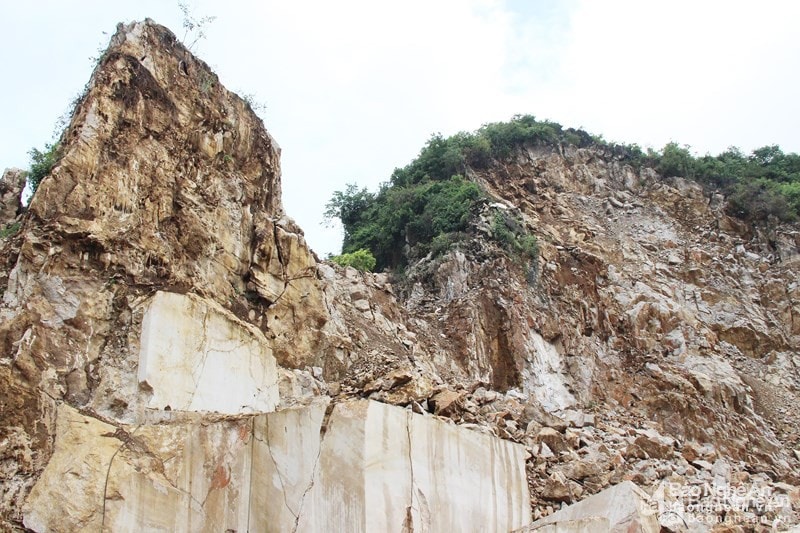 |
| Environmental protection in mineral activities needs to be given more attention. Photo: Mai Hoa |
- Regulations on environmental protection deposits for waste landfill activities; import of scrap from foreign countries as raw materials.
- Regulations to encourage communities, households, individuals and organizations to participate in environmental protection activities: preventing and limiting negative impacts on the environment; responding to environmental incidents; overcoming pollution and environmental degradation, improving environmental quality; rationally using natural resources, biodiversity and responding to climate change.
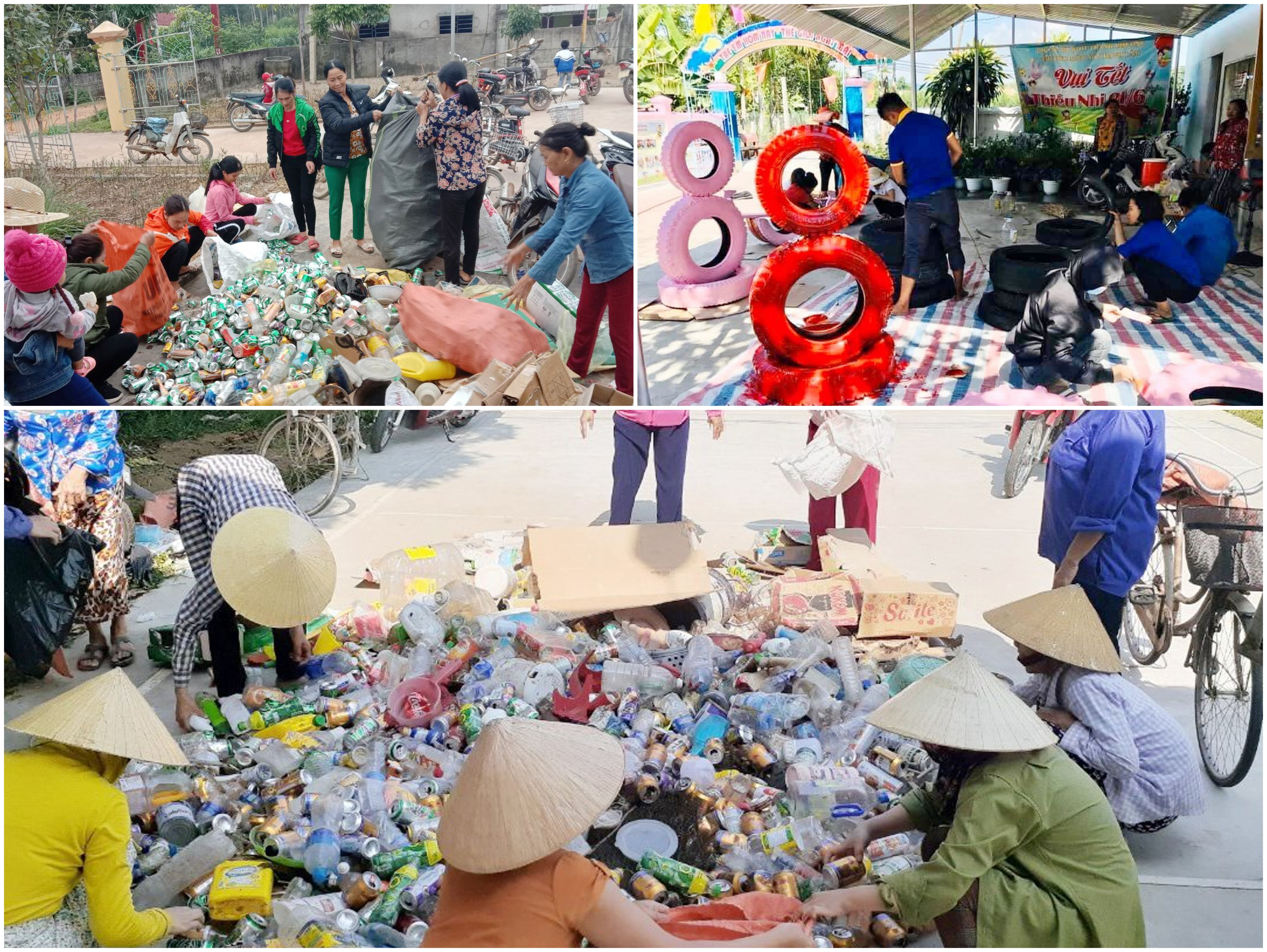 |
| Regulations to encourage communities, households, individuals and organizations to participate in environmental protection activities. Photo: People collecting and recycling waste. Photo: Mai Hoa |
Reporter:Could you tell us about the plan to implement and bring the Law on Environmental Protection into life in the province?
Comrade Thai Van Nong:To ensure the conditions for timely, unified, synchronous and effective implementation of the provisions of the Law on Environmental Protection 2020, contributing to social stability and promoting socio-economic development, the People's Committee of Nghe An province issued Official Dispatch No. 4409/UBND-NN, dated June 30, 2021. Therein, it requires focusing on disseminating, training, propagating and disseminating the Law; organizing the review and drafting of current legal documents on the environmental field under the authority of promulgation (including 15 contents that need to be promulgated); implementing 10 key tasks in environmental protection management.
Up to now, the Provincial People's Committee has submitted to the Provincial People's Council to issue Resolution No. 17/2021/NQ-HDND, dated December 9, 2021, regulating fees for appraisal of environmental impact assessment reports; fees for appraisal of issuance, re-issuance, and adjustment of environmental licenses; fees for appraisal of environmental improvement and restoration plans in Nghe An province.
The Party Executive Committee of the Provincial People's Committee also submitted to the Provincial Party Executive Committee for consideration and issuance of a resolution on strengthening the Party's leadership over environmental protection work in Nghe An province, for the period 2022-2030.
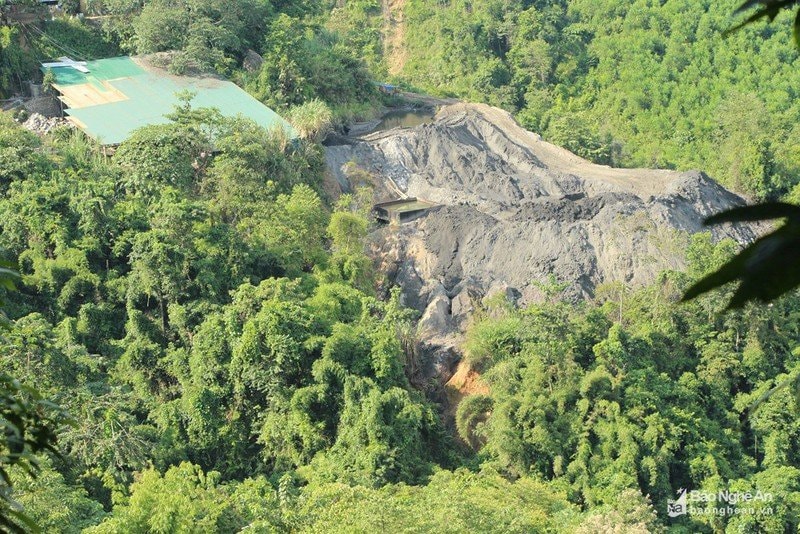 |
| Tin ore waste is discharged directly in the production area, without any storage tank of Ha An Tin Company in Quy Hop. Photo taken on October 15, 2018. |
In addition, the Provincial People's Committee has also directed the sectors, District People's Committees, especially the Department of Natural Resources and Environment to prepare the contents of implementing the Law on Environmental Protection, especially ensuring administrative reform, authorization, and environmental protection plans in the provincial planning...
A difficulty in implementing the Law at present is that according to the Plan for implementing the Law on Environmental Protection issued with Decision No. 343/QD-TTg dated March 12, 2021 of the Prime Minister, there will be decrees and circulars guiding the implementation of the Law that must be issued in the third quarter of 2021.
However, up to now, the Decrees and Circulars guiding the implementation of the Law are still not available, so there are many difficulties in the preparation work as well as many difficulties and obstacles in the process of implementing the Law when it comes into effect.
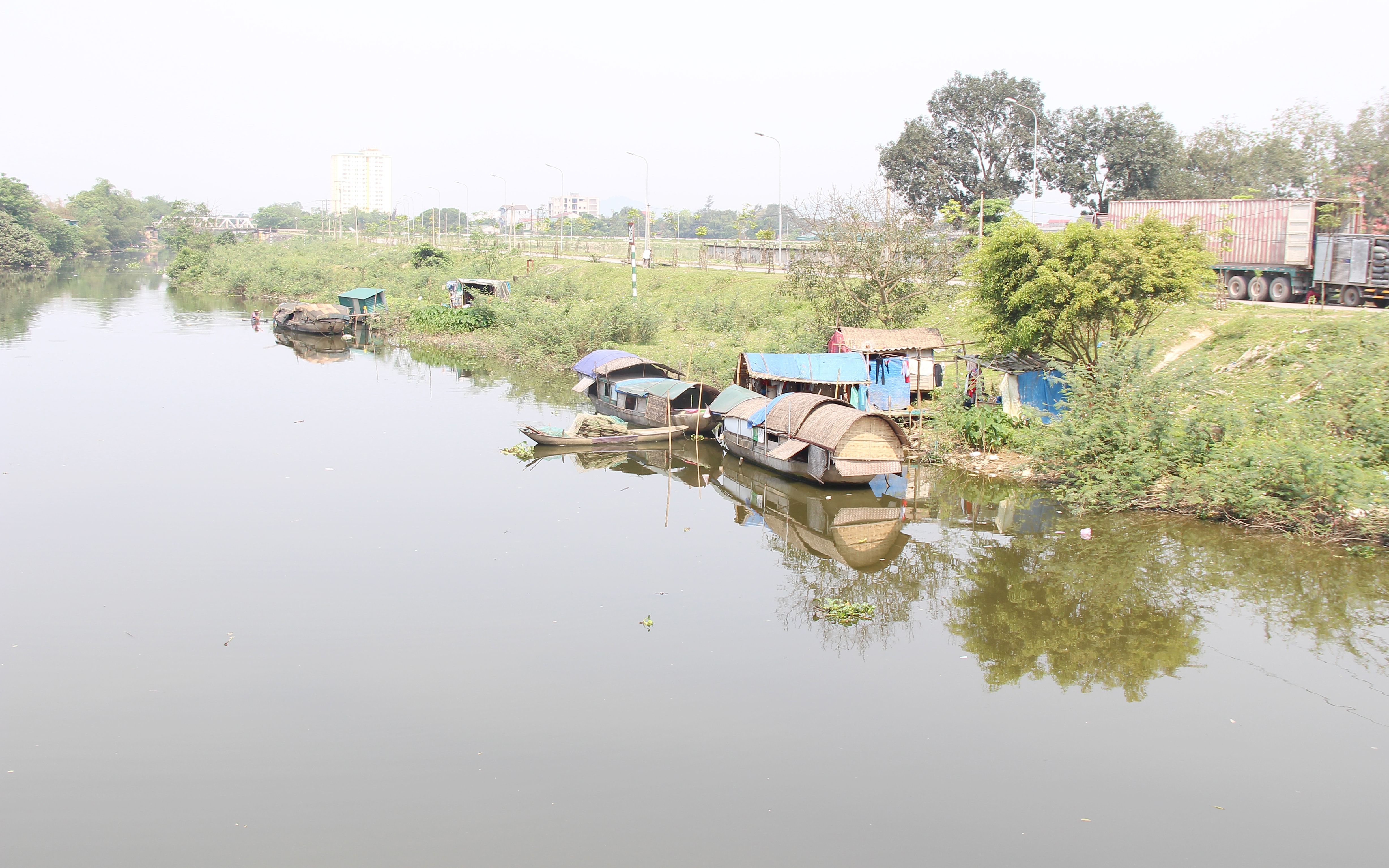 |
| Surface water pollution is a matter of concern today, especially in river and canal systems. Photo: Mai Hoa |
Reporter:One of the new points that you shared is related to waste treatment and waste classification at source. So to thoroughly implement these regulations in social life, what solutions do you think we need to focus on?
Comrade Thai Van Nong:Regarding the classification of domestic waste at source, this is a new content included in the Law on Environmental Protection in 2020. Accordingly, households and individuals are responsible for minimizing and classifying solid waste at source, collecting and transferring classified domestic waste to the right place.
Domestic solid waste generated by households and individuals is classified into the following types: solid waste that can be reused or recycled; food waste; other domestic solid waste. The reclassification of domestic solid waste must be carried out no later than December 31, 2024.
The Vietnam Fatherland Front Committee and socio-political organizations at all levels mobilize communities, households and individuals to classify domestic solid waste at source. Communities and socio-political organizations at the grassroots level are responsible for supervising the classification of domestic solid waste by households and individuals.
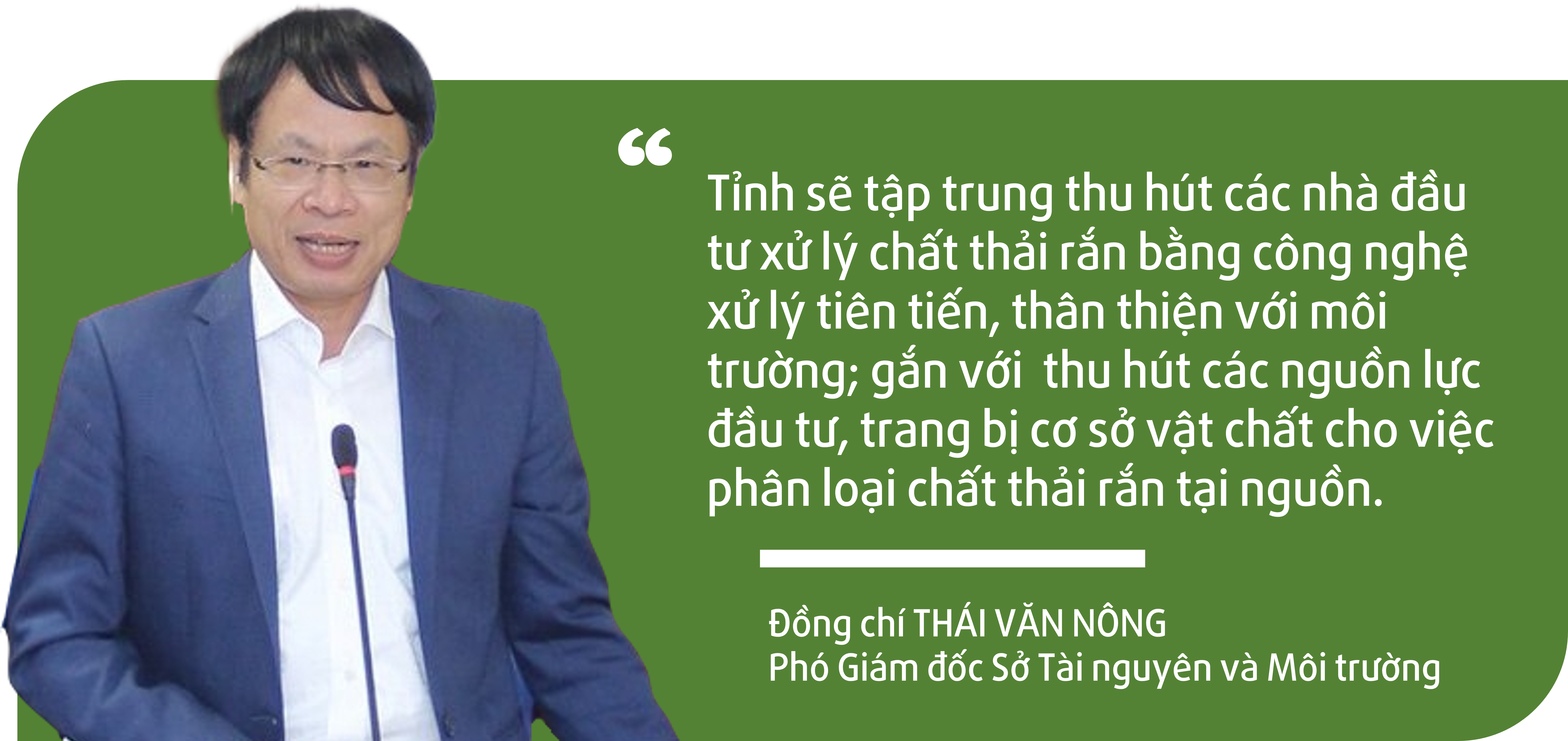 |
The implementation of regulations on treatment and classification of domestic waste at source in practice, not only the province but also the Ministry of Natural Resources and Environment clearly identifies that there will be many difficulties. Because the resources and facilities to meet the classification of solid waste at source are limited. Guidelines on methods of organizing the classification of solid waste at source have not yet been issued. In the near future, the Ministry of Natural Resources and Environment will issue guiding documents to organize the implementation of this content.
In the immediate future, the province will focus on attracting investors to treat solid waste with advanced, environmentally friendly treatment technology; attracting investment resources and equipping facilities for classifying solid waste at source.
Along with that, it is necessary to strengthen coordination with all levels, sectors, the Fatherland Front and mass organizations, political and social organizations at all levels to propagate, mobilize, raise public awareness, and guide people to classify waste at source; strengthen supervision of grassroots organizations as well as people themselves in classifying waste at source.
Reporter:Thank you very much for this exchange!

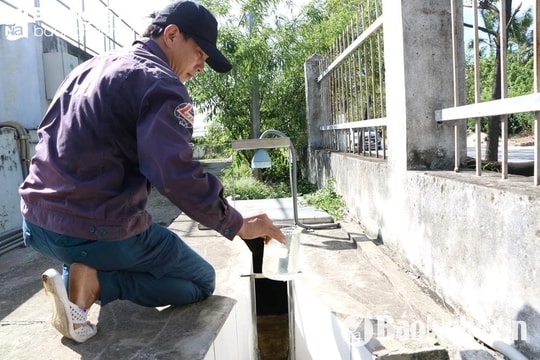
.jpg)
.jpg)

